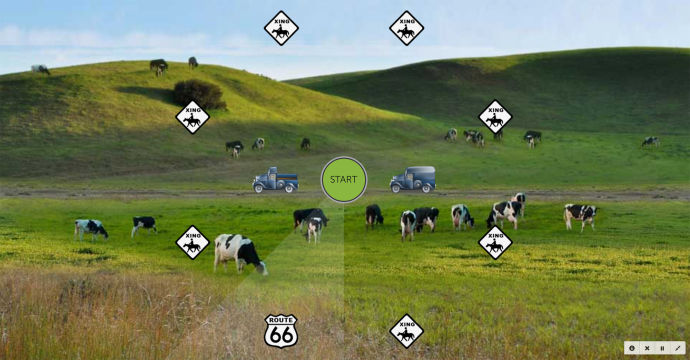ACTIVE study: Well-targeted brain training might significantly reduce dementia risk

–An example of a speed-of-processing task. Courtesy of Posit Science
Play on! In a first, brain training cuts risk of dementia 10 years later (STAT News):
“For the first time ever, researchers have managed to reduce people’s risk for dementia — not through a medicine, special diet, or exercise, but by having healthy older adults play a computer-based brain-training game.
The training nearly halved the incidence of Alzheimer’s disease and other devastating forms of cognitive and memory loss in older adults a decade after they completed it, scientists reported on Sunday. If the surprising finding holds up, the intervention would be the first of any kind — including drugs, diet, and exercise — to do that…
The results, presented at the Alzheimer’s Association International Conference in Toronto, come from the government-funded ACTIVE (Advanced Cognitive Training for Independent and Vital Elderly) study. Starting in 1998, ACTIVE’s 2,832 healthy older adults (average age at the start: 74) received one of three forms of cognitive training, or none, and were evaluated periodically in the years after…A key question is, if speed-of-processing training can reduce the risk of Alzheimer’s, can more be better? The ACTIVE participants got, at most, 14 hours of it nearly 20 years ago. But “given that 10 to 14 sessions had these benefits, just think what we could do with more,” Edwards said. “We should be thrilled about this.”
Study: Cognitive Training May Reduce New Cases of Cognitive Impairment and Dementia (press release; opens PDF)
- “Cognitive training for the maintenance of brain health is a growing area of interest, particularly as it may offer a complement or alternative to drug therapies in delaying the onset of cognitive decline. At AAIC 2016, researchers presented 10-year results from the Advanced Cognitive Training for Independent and Vital Elderly (ACTIVE) study, which examined the impact of several types of brain training on cognitively healthy older adults (average age 73.6)…After 10 years, only the speed-of-processing training group showed a statistically significant impact on cognition. The researchers detected a 33 percent reduction (p=0.012) in risk of developing cognitive decline or dementia over those 10 years in those assigned to the speed training group. Participants who did the booster sessions – those who participated in 11 or more sessions of the computerized training – showed a 48 percent reduction in risk of developing cognitive decline or dementia over time. There was no significant difference in the other two training groups.”
To learn more:
- Interview with ACTIVE Study’s researcher Dr. Jerri Edwards
- Can brain training work? Yes, if it meets these 5 conditions


